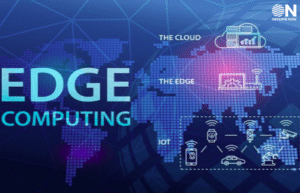Balancing Advanced Technologies and Data Security – Navigating GenAI for Threat Mitigation

In the rapidly evolving landscape of cybersecurity, leveraging advanced technologies such as Generative AI (GenAI) for threat mitigation is becoming increasingly essential. However, ensuring data security and privacy compliance for consumers remains a critical concern. Striking this balance requires a thoughtful, strategic approach, blending technological innovation with robust data governance. Here’s how organizations can achieve this balance effectively:
Data Governance and Risk Assessment
The journey begins with a comprehensive risk assessment to understand the potential impacts of using GenAI for threat mitigation on data security and privacy compliance. Establishing clear governance policies and procedures is vital to managing the risks associated with the collection, processing, and storage of consumer data. A thorough risk assessment helps in identifying vulnerabilities and developing mitigation strategies, ensuring that GenAI applications do not compromise consumer privacy.
Privacy by Design
Integrating privacy principles into the design and development of GenAI solutions from the outset is crucial. This involves embedding privacy considerations into every stage of the technology lifecycle, from data collection and processing to sharing and storage. Implementing privacy-enhancing technologies and techniques helps minimize the risk of unauthorized access or disclosure of consumer data. Privacy by Design ensures that privacy is not an afterthought but a foundational aspect of the technology.
Transparency and Consent
Maintaining transparency with consumers regarding the collection, use, and sharing of their data is fundamental. Clear and concise privacy notices should explain how consumer data will be used, who will have access to it, and the rights consumers have regarding data access and deletion. Obtaining explicit consent from consumers before processing their personal data for any purpose not directly related to threat mitigation fosters trust and ensures compliance with regulatory requirements.
Data Security Measures
Robust data security measures are essential to protect consumer data from unauthorized access, disclosure, or alteration. Employing encryption, access controls, authentication mechanisms, and monitoring tools can safeguard sensitive information effectively. Regular assessments and updates to security measures are necessary to address emerging threats and vulnerabilities, ensuring that consumer data remains secure in a constantly changing threat landscape.
Data Minimization and Purpose Limitation
Limiting the collection and processing of consumer data to only what is necessary for legitimate threat mitigation purposes is a key principle. Adopting a data minimization approach ensures that only the minimum amount of personal data required to achieve the intended objectives is collected and retained. Clearly defining the purpose of data processing and ensuring it aligns with consumer expectations and consent is crucial for maintaining trust and compliance.
Data Retention and Deletion
Establishing clear policies for data retention and deletion is essential. Define retention periods based on legal requirements, operational needs, and consumer consent. Ensure that data is securely deleted or anonymized when it is no longer needed for its intended purpose. This approach helps in mitigating risks associated with unnecessary data retention and ensures compliance with privacy regulations.
Third-Party Risk Management
Evaluating the security and privacy practices of third-party vendors and service providers involved in the deployment and operation of GenAI solutions is critical. Conduct thorough due diligence assessments, establish contractual obligations, and implement oversight mechanisms to ensure third parties comply with data security and privacy requirements. Effective third-party risk management minimizes potential vulnerabilities introduced by external partners.
Training and Awareness
Providing training and awareness programs to employees involved in the development, implementation, and operation of GenAI solutions is vital. Educating them about the importance of data security and privacy compliance, as well as their roles and responsibilities in safeguarding consumer data, fosters a culture of security within the organization. Continuous training ensures that employees stay updated with the latest best practices and regulatory requirements.
Monitoring and Compliance Audits
Implementing ongoing monitoring and auditing processes to ensure compliance with data security and privacy regulations is necessary. Regular assessments of GenAI systems, data processing activities, and associated controls help identify potential gaps or deficiencies. Taking corrective action as necessary to address non-compliance issues and mitigate risks ensures that the organization remains compliant and secure.
Continuous Improvement
Continuously evaluating and improving data security and privacy practices in light of evolving threats, technologies, and regulatory requirements is essential. Staying abreast of industry best practices, emerging trends, and lessons learned from security incidents enhances the effectiveness of GenAI solutions while safeguarding consumer data. A proactive approach to continuous improvement helps organizations maintain a robust security posture in a dynamic environment.
By following these guidelines and adopting a proactive, holistic approach to data security and privacy compliance, organizations can effectively leverage advanced technologies like GenAI for threat mitigation. This balanced approach ensures that consumer trust is maintained and regulatory compliance is achieved, enabling organizations to harness the power of GenAI while protecting consumer data.
Views expressed by Dr. Jitendra Mohan Bhardwaj, Group CISO, Tata Advanced Systems Limited
















